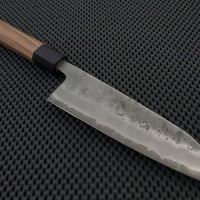
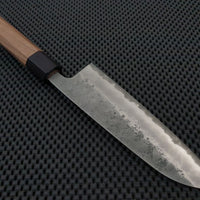
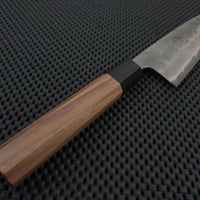
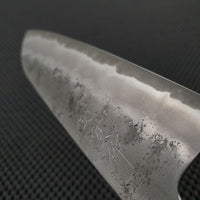
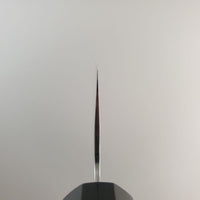
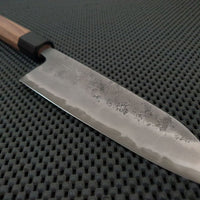
We are proud to be now stocking Kaneshige in Australia. Their Nashiji series is a stainless steel option crafted with one of our favourite steels, Ginsan Silver #3. These knives are a great middle-ground for those new to Japanese knives or after a dependable everyday knife. Thin enough for a decent cut feel but not so thin you need to worry about using it regularly.
- Kaneshige Japanese Knife
- Nashiji Finish
- 165mm Santoku Knife
- Ginsan (Silver #3) Stainless Steel Core
- Stainless Steel Cladding
- Japanese (WA) Handle:
- Walnut Handle
- Pakka Ferrule
- Crafted in Japan
- Edge Length: 168mm | Overall Length: 319mm | Blade Height: 47mm | Weight: 126g
- Blade Thickness: (A) 2.0 (B) 1.8 (C) 0.6

* As our Japanese chef knives are hand-made, small variations in size and appearance may occur, and measurements and images are a guide only.
.

Japanese Kitchen Knife | Santoku (Home Cook Knife)
Like it's larger cousin, the Gyuto, this is your go-to knife for any and all tasks within the kitchen. Generally Santoku knives are smaller in size than Gyuto, making them versatile in smaller home kitchens or for cooks with fledgling knife skills. Both styles of knife are multi-tasking machines that can be used for any and all cooking preparation tasks.
As is the case with most Japanese kitchen knives, the Santoku is thinner & lighter than other western chef knives, they are normally made from harder steel which can hold a sharper edge.






